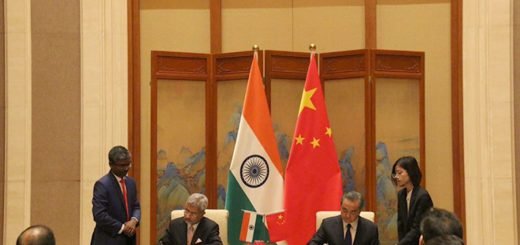New Sanctions between America and Russia; Waiver for India under CAATSA

Talks have been ripe on Capitol Hill about tightening the noose around Russia’s neck since the dreadful Helsinki conference; many have expressed unabashed opinions on Trump’s folly. However, the new sanctions seemed to have done just the opposite by announcing an extensive defence policy bill that would give President Trump greater power to waive certain Russia-related penalties.
The President was granted powers to waive sanctions by an agreement between House and Senate lawmakers against certain entities that are still doing business with Russia, without having to first consult with the Congress. Defence Secretary Jim Mattis’s request seems to be reflecting in this move; he wanted to bring countries like India, who have been historically dependent on Russian defensive materials, in close alliance with the United States.
Speaking of India, The US Congress has worked to remove the sword of sanctions hanging over US-India partnership, amending the dreaded Countering America’s Adversaries Through Sanctions Act (CAATSA). India, Indonesia and Vietnam will now be exempt and can continue buying Russian military equipment. But the final language in the National Defence Authorisation Act for 2019 does not give the kind of wide waiver authority that Mattis wanted; it is an altered waiver, requiring a presidential certification and necessitates certain criteria that must be met. Mattis was reported quoting, “The fundamental question we must ask ourselves is: Do we wish to strengthen our partners in key regions or leave them with no other option than to turn to Russia, thereby undermining a once-in-a-generation opportunity to more closely align nations with the US vision for global security and stability,”. Apparently, the last-minute push helped. “Secretary Mattis’ letter clarified that this was more about helping countries that want to come our way,” an unnamed Congressional aide stated to reporters.
This waiver should create happy talk during the India-US 2+2 dialogue in September, held in New Delhi. It should also give a thrust to solving pending issues.
Sources: Reuters, The Washington Post, Economic Times
*Neha Hardikar is a Research Intern at The Kootneeti


















